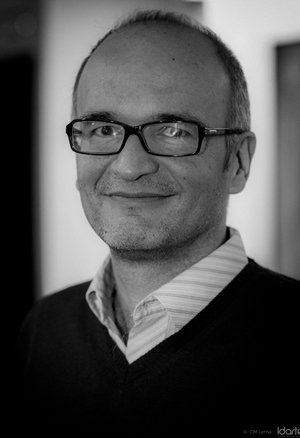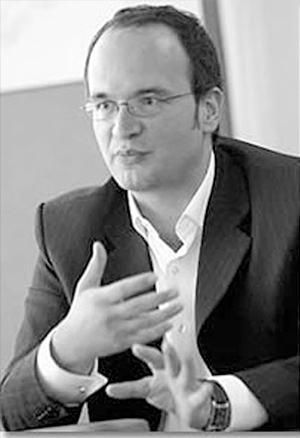Director of Audiovisuals, Film and Interactive Media of the Ministry of Cultures (CNACC)
JULIÁN DAVID CORREA
www.geografiavirtual.com
Writer, director and cultural and audiovisual administrator, a graduate in psychology with additional training in theater and creative writing, Correa spent several years developing programs in conflict zones throughout Colombia. He began writing for a number of publications in the early nineties.
He was part of the team that designed the Ministry of Culture's Film Office programs and was responsible for coordinating the Ministry's Training Group. He was Deputy Director of Books and Development at the Regional Centre for Book Development in Latin America, the Caribbean, Spain and Portugal (CERLALC-UNESCO), Director of Literature for the Office of the Mayor of Bogotá, and Coordinator of the Ministry of Culture's Book Office.
Born in Medellin in 1969, he developed a passion for cinema early on in his career and has made several short films and has written on the subject. He is convinced of the need for the different "Colombias" to express themselves audiovisually. Julian David has focused on working to strengthen the state's sense of responsibility with regard to an industry and an art that, aside from representing the country’s identity and heritage, are a source of wealth and employment.
Correa directed and hosted the television program En cine nos vemos for Señal Colombia and was Assistant Curator for the Oberhausen Short Film Festival in Germany. He has advised and developed cultural projects in different regions throughout the country and represented the nation's film directors on the National Council of Film Arts and Culture (CNACC) and the film industry on the National Council of Culture. He won the Carlos Castro Saavedra Latin American Short Story prize (1996) and a Canal U screenplay award (1998).
In 1992 he began writing on film and media for Kinetoscopio and Cinemas d'Amérique Latine, among others. In 1997, Felipe Aljure asked him to join the Ministry of Culture’s first Film Office, where he worked with a team to design programs. While with the Film Office, he coordinated the Training and Infrastructure Group until 2001 and was responsible for creating Imagining Our Image, a training program, which contributed to the emergence of audiovisual creators and administrators in regions as diverse as Arauca, Amazonas, San Andrés and Putumayo.
In 2001, he became Managing Director of the District Cinematheque, renewing the organization, and was responsible for the creation of the District Council on Audiovisual Arts. His work helped to strengthen the Cinematheque's relationship with professionals and companies in the audiovisual sector and thanks to his efforts, production grant competitions increased from a single annual prize to four a year through co-financing with other organizations.




